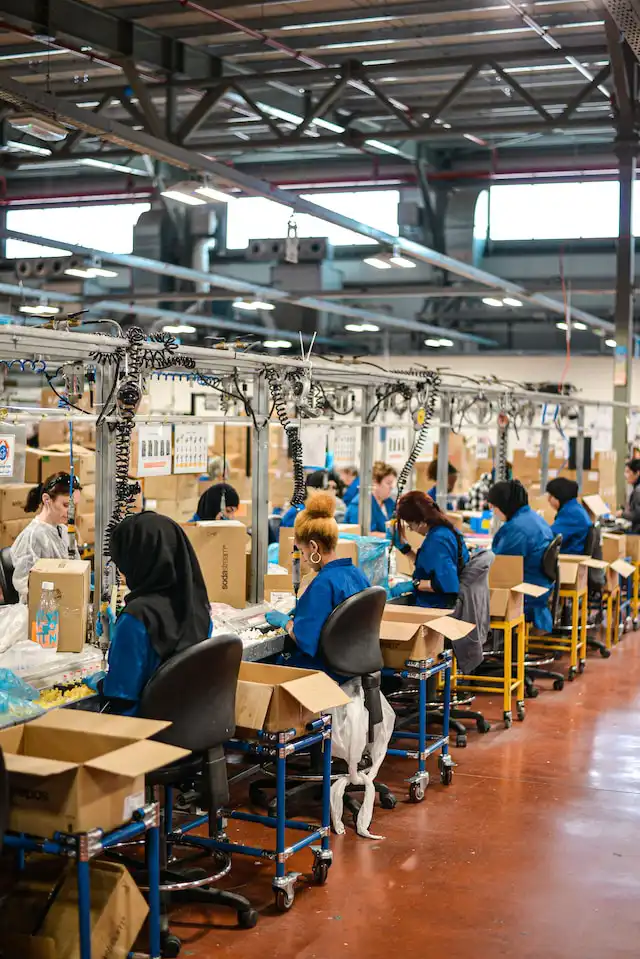
India Online Food Delivery Outlook to 2025
Growth Supported by Advent of Cloud Kitchen and Discounts Offered by Food Delivery Aggregators
Region:Asia
Author(s):Shivangi Sneha and Prahaladh Hariharan
Product Code:KR987
May 2020
98
About the Report
The report titled “India Online Food Delivery Outlook to 2025- Growth Supported by Advent of Cloud Kitchen and Discounts Offered by Food Delivery Aggregators” provides a comprehensive analysis of the Online Food Delivery Market in India. The report also explains the pain points of the consumers and the operators in the market. Further it proceeds with explanation of current demand and the supply infrastructure in India. It also includes the trends, developments, challenges, technological stack, revenue streams, marketing strategies and government regulations driving the industry. It gives detailed explanation of competitive scenario including cross comparison between major players, their operating models and detailed company profiles of major players. It concludes with future scope, upcoming technologies and delivery channels in the market.

Market Overview and Demand Scenario
Increased disposable income per capita, long working hours and increase in dual income and nuclear families have given rise to demand for online food delivery in India. The Online Food Delivery Market of India is currently in its growth stage. The Gross Merchandise Value of the market has been growing over a Positive CAGR of 120% during the review period of 2014-2019. The trend in the market indicates likelihood towards healthy alternatives and diet food. The decrease in the average order value over the years has further given rise to demand in the market.
Supply Scenario of the Market
The market players began entering the Indian market back in 2006, with “JustEat” and “FoodieBay” being the first ones to tap the market. Furthermore, companies like Foodpanda, TinyOwl, Swiggy and Uber Eats entered the market over the time period. But consolidation and successful exits from the market has resulted in only two players, Swiggy and Zomato sustaining in the market. Past few years have witnessed the growth of cloud kitchens in the Indian market with players such as Rebel Foods and Biryani by Kilo beginning to tap global markets.
Consumer Behavior in the Market
Consumers have displayed skewed likeliness towards fast food and north Indian cuisine. The consumers also tend to order food online predominantly in the dinner time most likely because long working hours as compared to all other global peers. Increased smart phone penetration led to increase in orders placed through the mobile as compared to website on laptop or desktop. The market has also been segmented by Gender amongst which males have shown high likeliness towards ordering food online more often. Consumer demand by age groups revealed that people in the age group of 18-35 years tend to order food more frequently.
Demand by Region
Cities such as Bengaluru, Delhi NCR, Hyderabad, Mumbai and Pune generate the highest revenue for the market. The higher concentration of millennials belonging to the age group of 23-34 years derives higher demand from these markets. However, aggregators as well as cloud kitchens have started penetrating to the Tier 2 and Tier 3 cities as an effort to tap potential customers.
Cloud Kitchen Space in India
The requirement for low investments while establishing a cloud kitchen backed by no necessity of store front has given rise to number of cloud kitchens in India. Cloud kitchens have witnessed growth due to low operational cost and high profit margins as compared to dine-in restaurants. The cloud kitchen market is further expected to grow in the future with companies across industries looking to invest in this particular model owing to its huge untapped potential. Major players such as Rebel Foods, Box8, Biryani by Kilo and Eat.Fit have aced the competition by offering high quality food at affordable prices.
Competitive Landscape
The India Online Food Delivery Market has consolidated over the years leading to only two major aggregators (order and delivery) players in the market which is Zomato and Swiggy. Uber Eats exited the market in 2020 by buying 9.99% stake in Zomato. The cloud kitchen space in India is in its booming phase with more players entering the market recently. Companies like Rebel Foods and Biryani by Kilo has been successful in scaling through Tier 2 and Tier 3 cities in India. They have also been one of the first Indian cloud kitchens to establish global foot prints. The low investment and high return characteristics of the cloud kitchen space has also attracted the aggregators to the cloud kitchen market (Swiggy Access).
Future Outlook and Projection
The demand is expected to grow with a CAGR over 25% during the period 2019-2025. The demand is expected to be driven by growing penetration into Tier 2 and Tier 3 cities. The future is expected to witness other E-commerce companies such as Amazon debuting into online food delivery service. The cloud kitchen space is further expected to grow with aggregators offering infrastructure to amateur players. Technologies such as drone delivery and 3D food printing are expected to boost the operational efficiency of the market.
Key Topics Covered in the Report:-
- Pain Points of the Companies
- Present Day Pain Points of the Operators
- Target Addressable Audience
- Operating Models in the Industry
- Addressable Gaps in the Market
- Types of Users
- Impact of Covid-19 on the Industry
- Cloud Kitchen Investment Model
- Revenue Models in the Market
- Analyst Recommendations
Products
Key Target Audience
- Online Food Delivery Companies
- E-commerce Companies
- Cloud Kitchen Companies
- Private Venture Capital Firms
- 3rd Party Logistic Companies
Time Period Captured in the Report:-
- Historical Period: FY’2015–FY’2020
- Forecast Period: FY’2021-FY’2025
Companies
Key Segments Covered
By Type of Kitchen
- Private
- Cloud Kitchens
By Region
- Bengaluru
- Delhi NCR
- Hyderabad
- Mumbai
- Chennai
- Pune
- Kolkata
By Markets
- Core Markets
- Emerging Markets
- Rest of India
By Mode of Payment
- COD
- Credit/Debit Card
- Payment Wallets
- Net Banking
By Type of Food
- Fast Food
- North Indian
- South Indian
- Street Food
- Others
By Age
- 18-24 Years
- 25-34 Years
- 35-44 Years
- 45-54 Years
By Gender
- Male
- Female
By Share of Meals
- Dinner
- Lunch
- Breakfast
- Others
By Mode of Ordering
- Mobile
- Website
Companies Covered:
- Zomato
- Swiggy
- Rebel Foods
- Biryani by Kilo
- Box8
- Eat.Fit
- Fresh Menu
Table of Contents
1.Executive Summary
2.Needs & Gaps in Online Food Delivery
Pain Points of Consumers
Target Addressable Market
3.Supply Analysis of India Online Food Delivery Market
Market Timeline (Timeline of Major Companies)
Industry Life Cycle
Supply Infrastructure
Supply Ecosystem
Present Day Pain Points of Operators
4.Demand Analysis of Online Food Delivery Market
India Food Delivery Market Size by GMV, FY’2015-FY’2020 (Total Number of Orders, Gross
Merchandise Value, Average Order Size)
India Online Food Delivery Market Segmentation by Region, FY’2020 (GMV by Region- Emerging and
Core Markets)
Who is my consumer?
Factors influencing Consumer Behavior
Type of Users in Food Delivery
How India Eats? Changing Customer Preferences
5.Impact of Coronavirus on Online Food Delivery Industry
6.Operating Models (Commissions, Payment Gateway Charges)
Order only Model
Order cum Delivery Model
Process of On Boarding Restaurants
Basis of Charging Commissions for Restaurants
Cross Comparison of Different Operating Models (Commission Charged, Advantages, Disadvantages,
Companies)
7.Cloud Kitchens in India
Overview on Cloud Kitchen Industry in India
Operating Model
Types of Business Model (Rebel Foods, Swiggy Access, Zomato Infrastructure, Fresh Menu Model)
Process of Setting up Cloud Kitchen
Cloud Kitchen: Investment Overview
Cloud Kitchen: Investment Assumptions
Cloud Kitchen: Investment Model Analysis (Cost- Benefit Analysis; Gross Profit, EBITDA, EBIT,
PAT, Profit Margin)
Cloud Kitchen: Investment Model Analysis (Own Fleet)
Cross Comparison of Major Cloud Kitchen Players (Founding Year, Avg Order Size, Avg Order
Value, Delivery Cost, Fleet Size, Number of Cloud Kitchens, Revenue, Expenses and Promotional
Expenditure, 2019)
Future of Cloud Kitchen industry in India, 2019-2025F (Total Orders, Market Size)
8.Revenue Streams of Food Delivery Aggregators (Delivery Commission, Advertisement, Sustainability, Grocery Delivery, Ride Hailing, Premium Subscription)
9.Technology Inter-Play in the Industry
Technology Stack (Technologies Used)
Consumer Interface (Process of Consumer Delivery)
Delivery Partner Interface
10. Industry Analysis
Key Trends
Government Guidelines (New FSSAI Guidelines and Regulations)
SWOT Analysis
Investment Map (Map of Investors between Major Companies)
11.Competitive Scenario
Competitive Landscape (Industry Unit Economics and Competition Scenario and Parameters)
Market Share of Aggregators and Cloud Kitchen Companies by Orders, 2019
Competition Benchmarking of Aggregators (Business Model, Management, Funding, Vintage Years,
Investors, Mergers and Acquisitions, Revenue, Avg Orders per Month, Avg Order Value, Fleet
Size, Delivery Time, Delivery cost/order, Avg Monthly active users, Average Margin,
Cancellation Rate, Refund Rate, Cloud Kitchens, Exclusivity Clause)
12.Company Profiles (Overview, Key Parameters, Target Audience, Financial Indicators, USP, Future Strategies, Top Investors)
Zomato
Swiggy
Rebel Foods
Box
FreshMenu
Eat.Fit
Biryani by Kilo
13.Future Outlook of India Online Food Delivery Market
India Online Food Delivery Future Market Size, 2019-2025F (Future Orders, Gross Merchandise
Value, Average Order Size)
Automated Delivery: Drones
14.Analyst Recommendations (Backward Integration, Partnerships, Cross Industry Collaboration)
15. Interview with Vishal Jindal, (Co Founder Biryani by Kilo)
16. Appendix
Market Definitions
Abbreviations used
Market Sizing Approach
Consolidated Research Approach
Sample Size
Primary Research Approach
Multifactor Sensitivity Based Model
Regression Matrix
Research Limitations and Final Conclusions
Disclaimer
Contact Us
Why Buy From Us?

What makes us stand out is that our consultants follows Robust, Refine and Result (RRR) methodology. i.e. Robust for clear definitions, approaches and sanity checking, Refine for differentiating respondents facts and opinions and Result for presenting data with story

We have set a benchmark in the industry by offering our clients with syndicated and customized market research reports featuring coverage of entire market as well as meticulous research and analyst insights.

While we don't replace traditional research, we flip the method upside down. Our dual approach of Top Bottom & Bottom Top ensures quality deliverable by not just verifying company fundamentals but also looking at the sector and macroeconomic factors.

With one step in the future, our research team constantly tries to show you the bigger picture. We help with some of the tough questions you may encounter along the way: How is the industry positioned? Best marketing channel? KPI's of competitors? By aligning every element, we help maximize success.

Our report gives you instant access to the answers and sources that other companies might choose to hide. We elaborate each steps of research methodology we have used and showcase you the sample size to earn your trust.

If you need any support, we are here! We pride ourselves on universe strength, data quality, and quick, friendly, and professional service.















